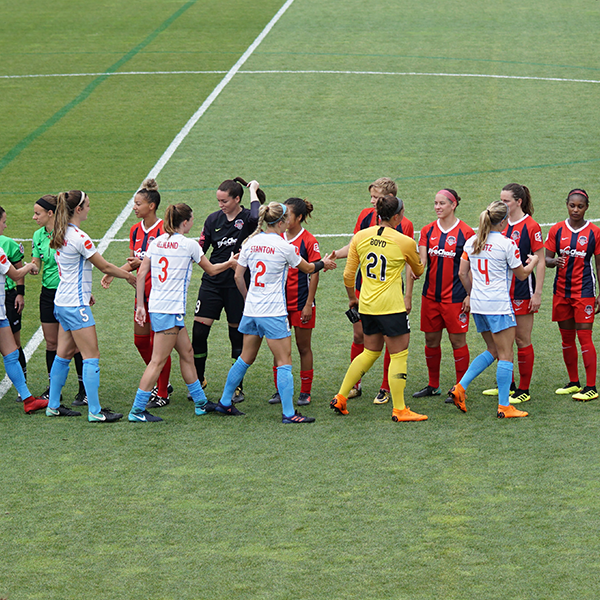In this blog series, our sport psychologists explore the impact that playing behind closed doors during the Coronavirus pandemic may have on players and referees.
Part 1: The psychology of playing behind closed doors
As lockdown measures ease in England, the Premier League is currently deciding whether to restart the season. Given that it’s likely that players may have to compete at neutral venues, we thought we’d delve into the psychology of playing at neutral grounds. One of the first obvious changes this brings: there won't be a home or an away team anymore...
Do teams get a home advantage?
One of the questions we often get asked is whether there is such a thing as a home advantage effect. Well, a quick look at the history books suggest that when it comes to major tournaments, home teams tend to do quite well.
Uruguay (1930), Italy (1934), Spain (1964), England (1966), Italy (1968) West Germany (1974), Argentina (1978), and France (1984 and 1998) have all won when hosting the World Cup or European Championship. So, if home teams do perform better, why might that be the case?
Better referee decisions
Teams playing at home are more likely to be awarded penalties, receive less yellow and red cards, and have more time added at the end of the match if they are losing. This might not be intentional, but it certainly happens. This of course suggests that, apart from the team’s actual performance, there is some bias towards a home team.
All Out Attack
It has previously been found that teams playing at home score more goals than away teams do (about 37% more), partially because the crowd expects them to go and attack. And they do. As well as this, teams playing at home have also been found to put in extra effort when they are playing.
Familiarity
Interestingly, there’s another idea that home teams playing well has actually less to do with the crowd supporting them, but more to do with feeling familiar in their home environment. Having a sense of familiarity makes us feel as though we are in control and can make players feel more confident. So being familiar with the ground, the noises, the sights, the layout and dimensions can be really helpful. Although this might not make the biggest difference, in a game dependent on marginal gains, it could be the difference that makes the difference.
Defending their territory
One study found that ‘salivary testosterone levels in soccer players were significantly higher before a home game than an away game’. Interestingly, the authors suggested that this is linked to the desire to display dominance and assert authority at their home ground, or for players to defend their territory.
Will the favourite always win behind closed doors?
So, if there is such thing as a home advantage and teams won’t have the same psychological and physical benefits playing at a neutral ground, does this mean that scores and results will be more predictable? Or in other words: will the favourite always win?
Not long ago, we analysed every match in the 2018-19 Premier League season and found that favourites only win 57.9% of the time and, surprisingly, lose 42.1% of their matches. You can check out the full blog here.
So, why don’t the favourites win more often? Other than the fact that the Premier League is the most competitive league in the world, we think there are three main reasons:
- Wrong expectations – Assuming you will win lowers expectations, which lowers motivation.
- Less is more – When favourites think about winning too much during the game, it can cause their play to be jerkier as opposed to being more natural and intuitive.
- Underdogs – Underdogs often achieve because of their culture as teams who are on the same page and work for each other will do well behind closed doors.
FINAL THOUGHT
Although we like the idea of ‘embracing the new normal’ we also think that you shouldn’t stray too far away from what used to work. So, if football does come back, teams that strive to work together, think about what they need to do well and focus only on what matters will have the best chance of playing well regardless of the grounds.
Check out part 1 of this blog series: playing behind closed doors.
Stay tuned for part 3 of this series - tomorrow, we'll take a look at how matches behind closed doors will play on referees' choices.
For even more resources to help you during lockdown, check out our free six-packs - we have two available for athletes. We also offer sport psychology coaching sessions via video call!





